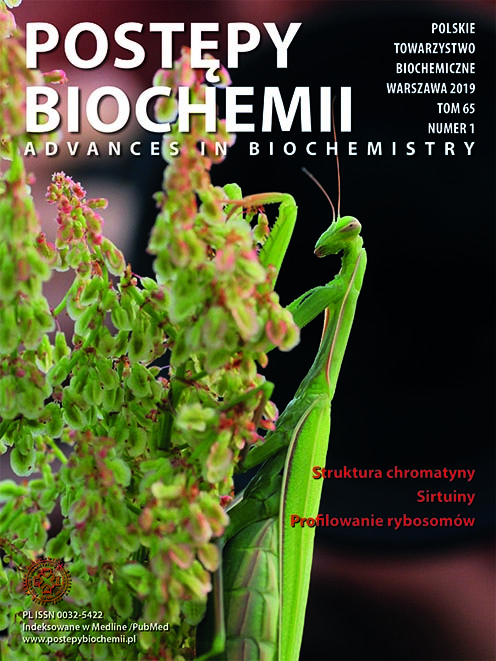The role of the brain-derived neurotrophic factor (BDNF) in neurodegenerative processes and in the neuroregeneration mechanisms induced by increased physical activity
DOI:
https://doi.org/10.18388/pb.2019_251Abstract
The brain-derived neurotrophic factor (BDNF) belongs to the family of neurotrophins synthesized in the central and peripheral nervous system.
Several specific miRNAs (miR-1, miR-126 and miR-30a-5p) are involved in the regulation of BDNF synthesis. Its synthesis is also influenced
by the SNP-Val 66Met BDNF polymorphism (rs 6265). BNDF can cross the blood brain barrier. Its role in the central and peripheral rely
on regulation of important physiological functions, i.e. development and growth of neurons, the process of learning and memory, apoptosis,
neurogenesis and neuroregenation through activation of TRkB and p75NTR receptors. Lowering BDNF level mediates neurodenegeration
of neurons including dopaminergic neurons in Parkinsonâs disease. Regular long-term repeated physical exercise and/or moderate to high
intensity training induces an increase level of BDNF and TrkB receptors in the brain regions responsible for motor activity, preventing neurodegeneration,
especially in the
Downloads
Published
Issue
Section
License
All journal contents are distributed under the Creative Commons Attribution-ShareAlike 4.0 International (CC BY-SA 4.0) license. Everybody may use the content following terms: Attribution — You must give appropriate credit, provide a link to the license, and indicate if changes were made, ShareAlike — If you remix, transform, or build upon the material, you must distribute your contributions under the same license as the original. There are no additional restrictions — You may not apply legal terms or technological measures that legally restrict others from doing anything the license permits.
Copyright for all published papers © stays with the authors.
Copyright for the journal: © Polish Biochemical Society.




